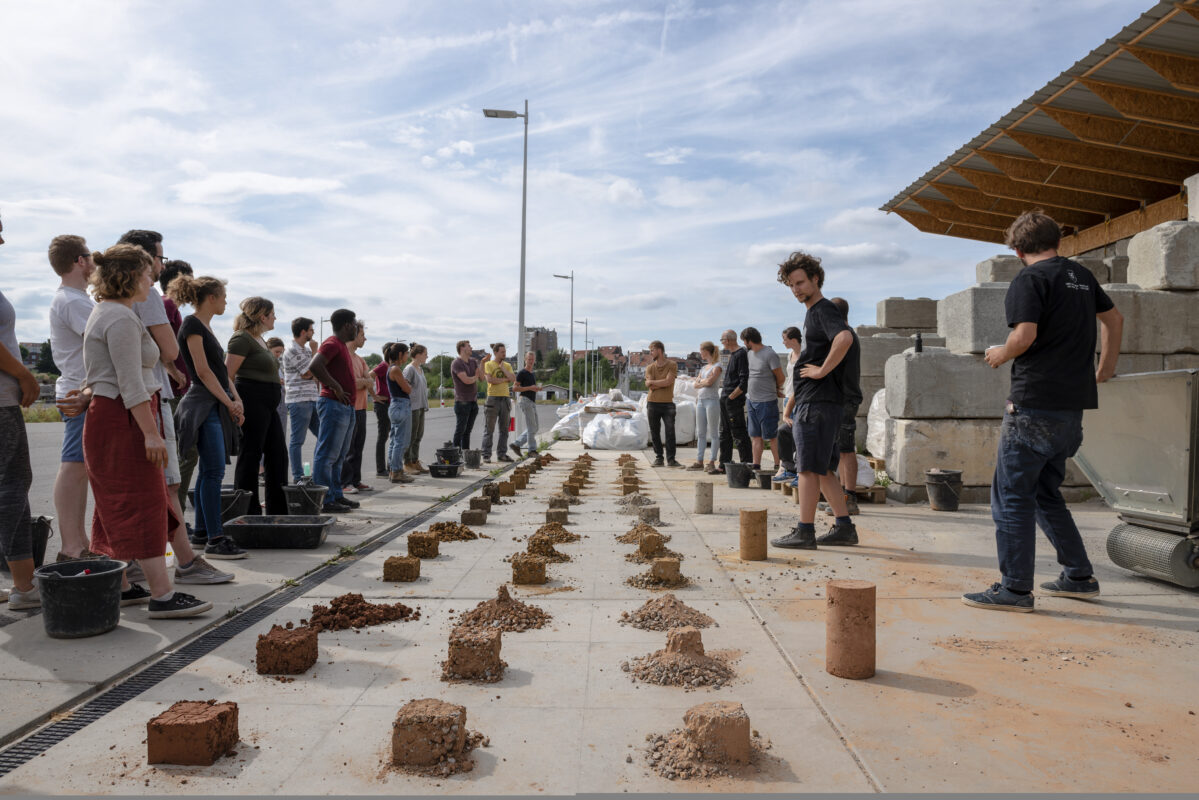Brussels start-up BC Materials transforms excavated earth of construction sites into building materials.
The origin story of BC Materials is rooted in a small Burundian city, Muyinga. On a mission for their parent company, BC Architects, the team discovered how complicated it was there to use imported materials to build anything. Costs were far too high, BC Materials’ Anton Maertens explained.
But local architects and contractors then showed them how to build with raw earth. The Belgian team was intrigued, to say the least. It got them thinking: they could very well do the same in Belgium, where there is a lot of unused excavated earth…
Back in Belgium, they first integrated raw earth in some much-talked-about architectural projects. Then they decided to take a step further. That’s why, in October 2018, they finally launched BC Architects’ young spin-off, the aptly named BC Materials. And since then, and despite the bitter impact of covid last year, the growth of the young startup hasn’t stopped.
On the contrary, since their launch, they have steadily grown, recording each year better results than the previous year.
Now, Anton Maertens tells us with confidence, they are looking forward to see what the future holds for them.
We talked about their plans during our last videoconference interview.
Tell me about BC Materials.
“BC Materials is a young Brussels start-up. We were born 2.5 years ago as a spin-off of BC Architects, an experienced Brussels architectural firm.”
“We wanted to help the construction sector overcome its waste problem. Some 2 million tons of earth are excavated each year in Brussels and 37 million throughout Belgium. So we thought, what if we reuse this earth to build something new? “
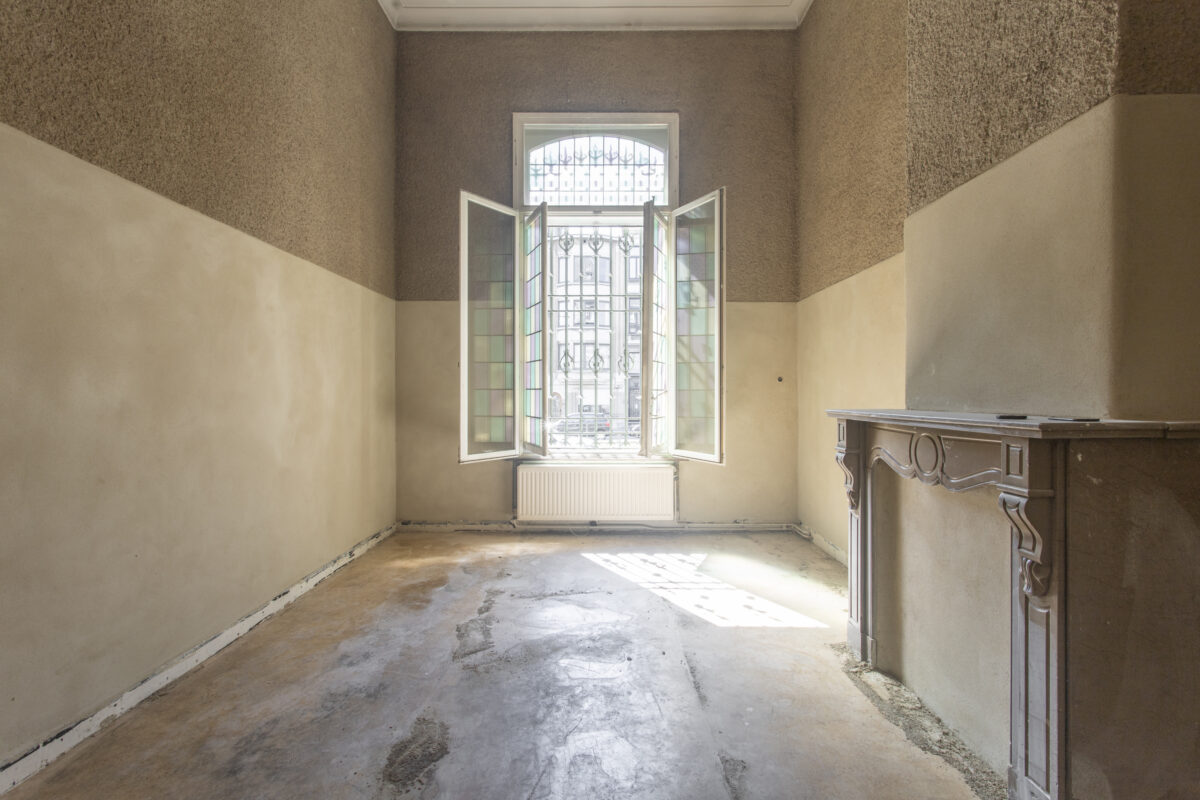
“Now BC Materials transforms the excavated earth into clay plasters, compressed earth blocks, and rammed earth. These are 3 different types of building materials that can replace classic plasters and classic bricks for floors and walls.”
“All our building materials are 100% circular. There is no chemical change within the components so they can be reused infinitely.
Moreover, their production doesn’t generate any carbon dioxide emissions.”
What has been the industry reaction thus far?
“The construction industry is starting to realize that sustainability is a serious matter. This is not a game or a passing fashion of our society. Everybody needs to pitch in.”
“The market’s gradually shifting towards a different building culture.”
“Currently, the construction sector is still extremely polluting, generating a third of all waste, and usually the earth is disposed of into mines or road foundations, which is a waste.”
“Companies around us are starting to take an interest in our solution to avoid waste and stay local.”
“The pandemic crisis brought many obstacles in logistics. International trade had to face unexpected challenges. Now more than ever, it’s smarter and more practical to use local materials.”
“Now more than ever, we should build with local materials.”
“A growing number of larger players are now contacting us, intrigued by what we can offer them. And I think that interest will only increase in the future.”
What are your main challenges?
“We face the same challenges as all young and sustainable startups. In order to be ready for larger orders, we need to start scaling our production system, while remaining cautious about our spending.”
“We must take the necessary steps to grow organically.”
“In addition, one of the main challenges for green building materials is price. It is difficult to guarantee a price low enough to be attractive in the competitive construction sector. From this point of view, our clay plasters meet the market’s needs.”
“Our other two products are a little more expensive: but we have worked to reduce the costs of our compressed earth blocks by 50 cents. And with regard to our rammed earth solution is concerned, it’s a special high-end mix that is quite expensive in application and usually only bought by a very specific group in the market.”
“But we think there’s a lot of potential in each of those areas.”
“We also do R&D and consultancy, which we love. We like to experiment and work with our clients around practical and challenging cases.”
You work within a network of specialists with various skills. How does it work concretely? And are you looking for new partnerships, or business opportunities (e.g. in tech)?
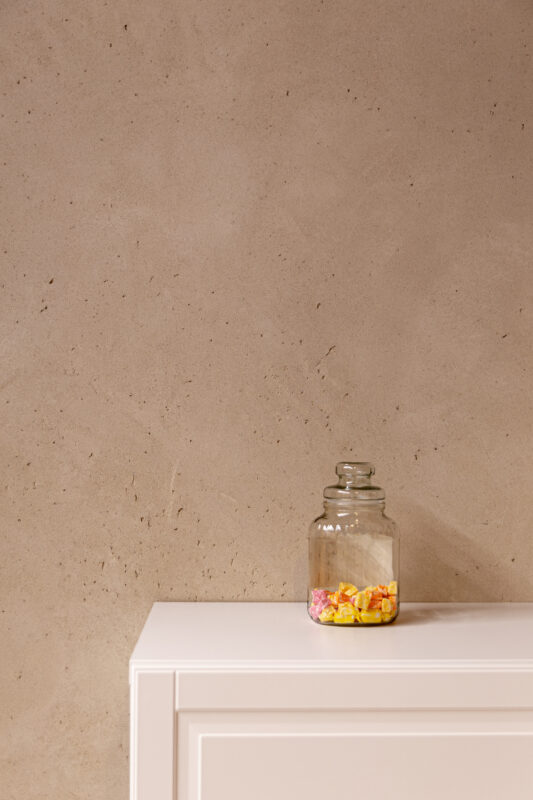
“We interact with a large number of people on a variety of subjects. We are not just the providers; we wear various hats depending on the needs of the site.
We design the clay plasters, produce prototypes, act as consultants and we can also perform soil tests for building purposes, among a variety of other things.”
“We believe it’s important to be flexible and to work with the client, whatever goal they’re seeking to achieve.”
“Then, in terms of opportunities, yes, we think there are plenty of business opportunities for real estate companies that want to do their best in terms of sustainability and circular tendering.”
“Sustainability criteria are becoming increasingly important in tenders, which can be a challenge for a real estate company.”
“By working with us, not only do we offer a unique solution, which is circular, sustainable, and zero-waste, but we also have more than 10 years of experience in the field. Many startups cannot say the same.”
“I look forward to working with like-minded real estate companies. Having the opportunity to design and build together the best sustainable project, while keeping in mind the best interests of residents and buyers … well, that’s in good harmony with the core mission of BC Materials.”
What can you tell us about your services and workshops? Could you tell us a bit about what professionals can gain from these initiatives and how they can take part?
We offer different types of workshops :
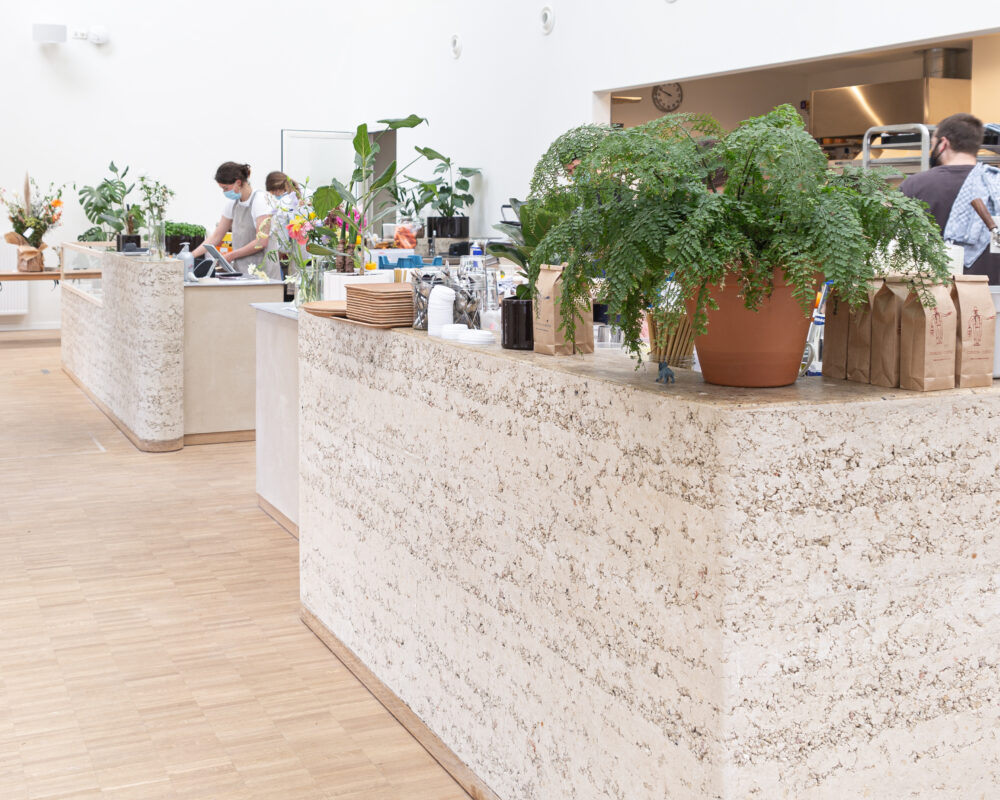
- The first is oriented towards architects, designers, and students, who share our interest in raw earth construction and which aims to provide introductory information on earth materials.
- The second workshop is a lot more practical where we help participants make, for example, their own rammed earth stool, or other design they have in mind. So you learn by doing.
- Third, we also organize workshops for contractors because we see a lot of them are interested in learning how to apply clay plasters, or rammed earth as it is a growing market.
In addition, we also organize team-building events for large construction companies.
Finally, what can we hope to see from BC Materials in the future?
“We are working on several larger projects, and we hope to continue that momentum.”
“We’d like to further develop our offer in order to increase our impact in the Belgian sector.”
“We want people to realize the strength of our solutions. They don’t have to go looking for products abroad; we can offer them a local and sustainable alternative at an attractive price.”
“We also have a big project coming up in June in Paris. I can’t talk about it much because we are on a non-disclosure, but it’s a very special project, and we’re very excited about it.”
“So feel free to follow us on social media and in the news: we’ll reveal more details about the project shortly.”
Thank you. Is there anything else that you would like to share with us?
“While many people are interested and investing in sustainability today, some are still dragging their feet.”
“But that’s their loss in the end because that’s where the future of construction lies. It’s a competitive advantage to have expertise and practical knowledge in circularity. At BC Materials, we believe it’s smart to invest in sustainability now and strive to build in the cleanest way possible.”
“I hope people see it as a positive competition, which will encourage them to do remarkable work while leaving less waste and carbon emissions for the future.”
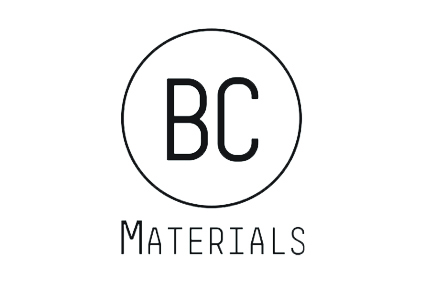
Check their website for more info : BC Materials
Liuba Diederich

